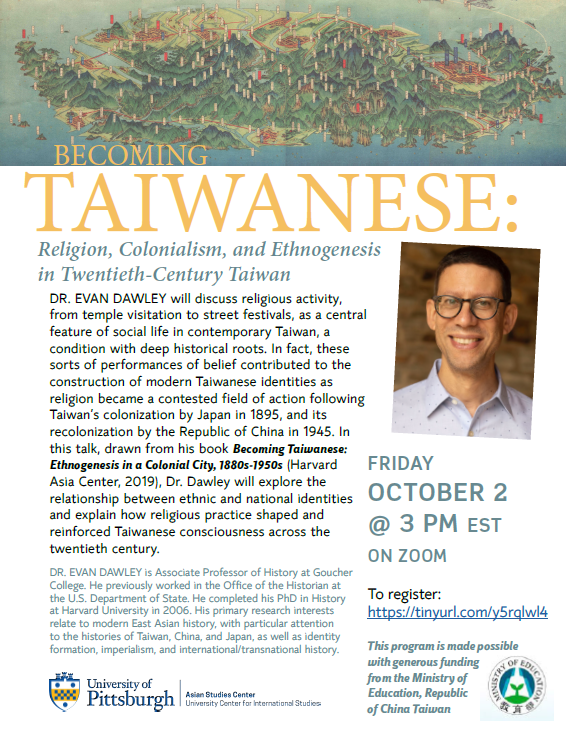The University of Pittsburgh Establishes new Taiwan Studies Program

Taiwan's Ministry of Education and the University of Pittsburgh have signed a memorandum of understanding to establish a new Taiwan Studies program at the university’s Asian Studies Center. The 3-year program is called Centering Taiwan in Global Asia. It’s designed to examine Taiwan's crucial role in the globalization of modern Asia from historical, cultural, political, economic and socio-developmental perspectives. Taiwan’s own development has been shaped by diverse historical and cultural influences so it can be viewed as a microcosm of the forces driving the development of modern Asia.
The Asian Studies Center has three major initiatives planned for its Taiwan Studies program:
* It will offer two new courses in Taiwan Studies: a general education class for undergraduates covering the history of migration to Taiwan, and a specialized course on Taiwan’s history from the 16th century onwards.
* Taiwan Studies will be incorporated into the University of Pittsburgh’s community engagement programs, and more Taiwan-related topics will be incorporated into the curriculum for Asian Studies Center’s existing K-12 teacher training programs.
* The program will also host seminars, lectures, and film screenings on topics ranging from Taiwan’s economic development, and immigration patterns, to religious practices.
These program initiatives have already begun. A lecture on the topic Becoming Taiwanese: Religion, Ethnogenesis, and Colonialism in Twentieth-Century Taiwan, given by history professor Dr. Evan Dawley on October 2. Dr. Dawley analyzed the formation of a distinct Taiwanese identity, and how this process was influenced by traditional religious practices and the various colonial nations who were present throughout Taiwan’s history. This lecture had to be presented virtually because of the COVID-19 pandemic but many students and faculty from the university took part and it was followed by a lively Q&A session.
